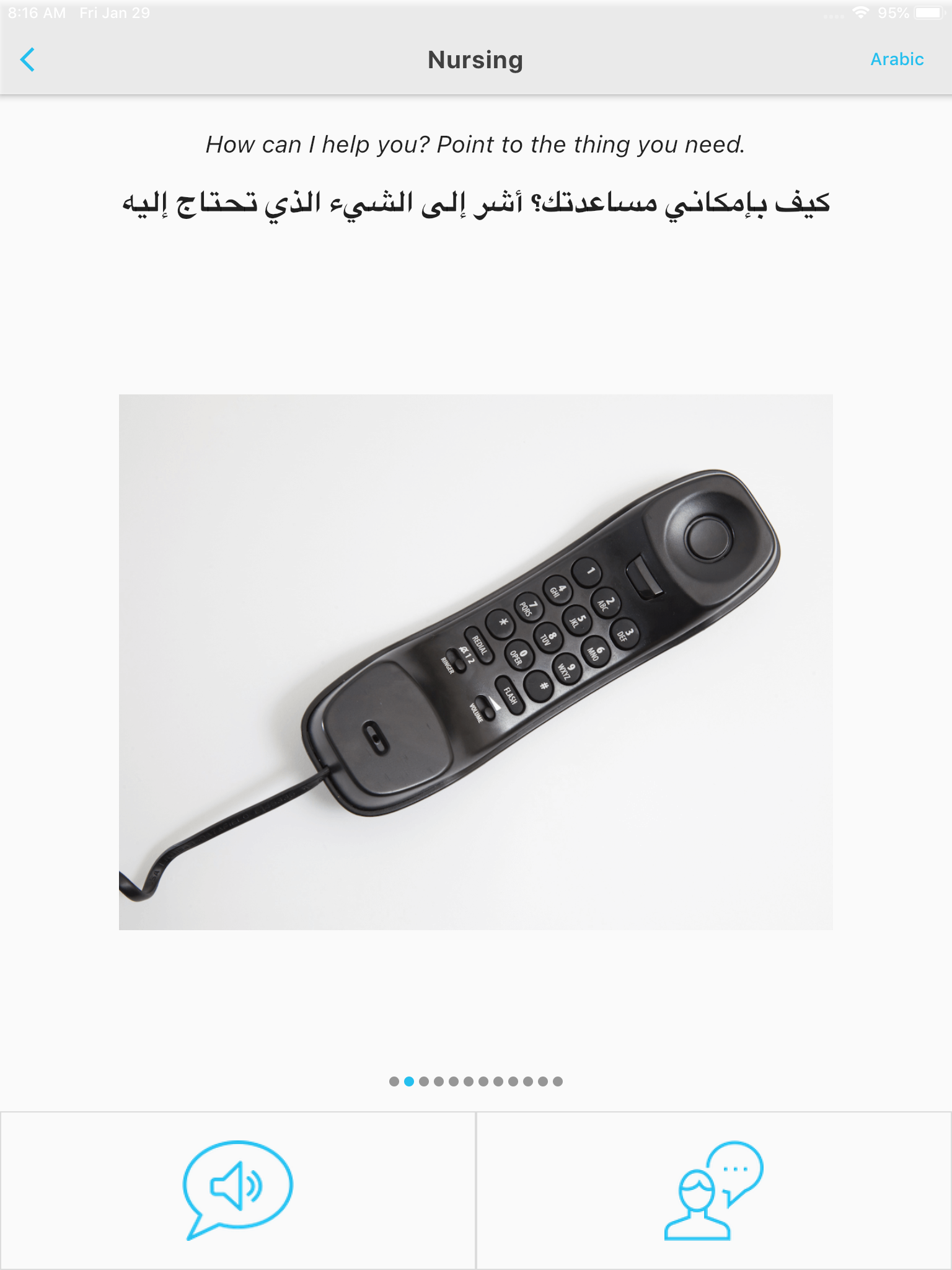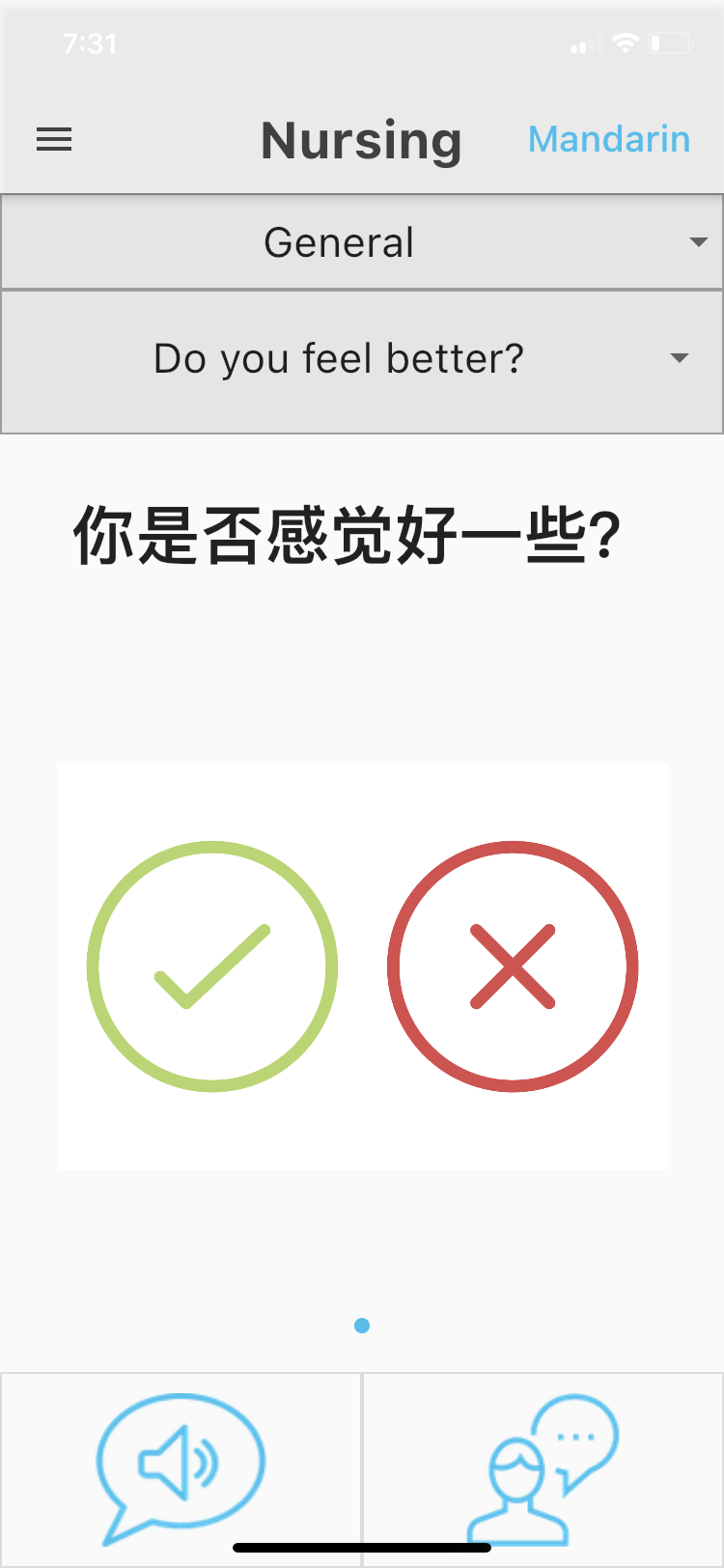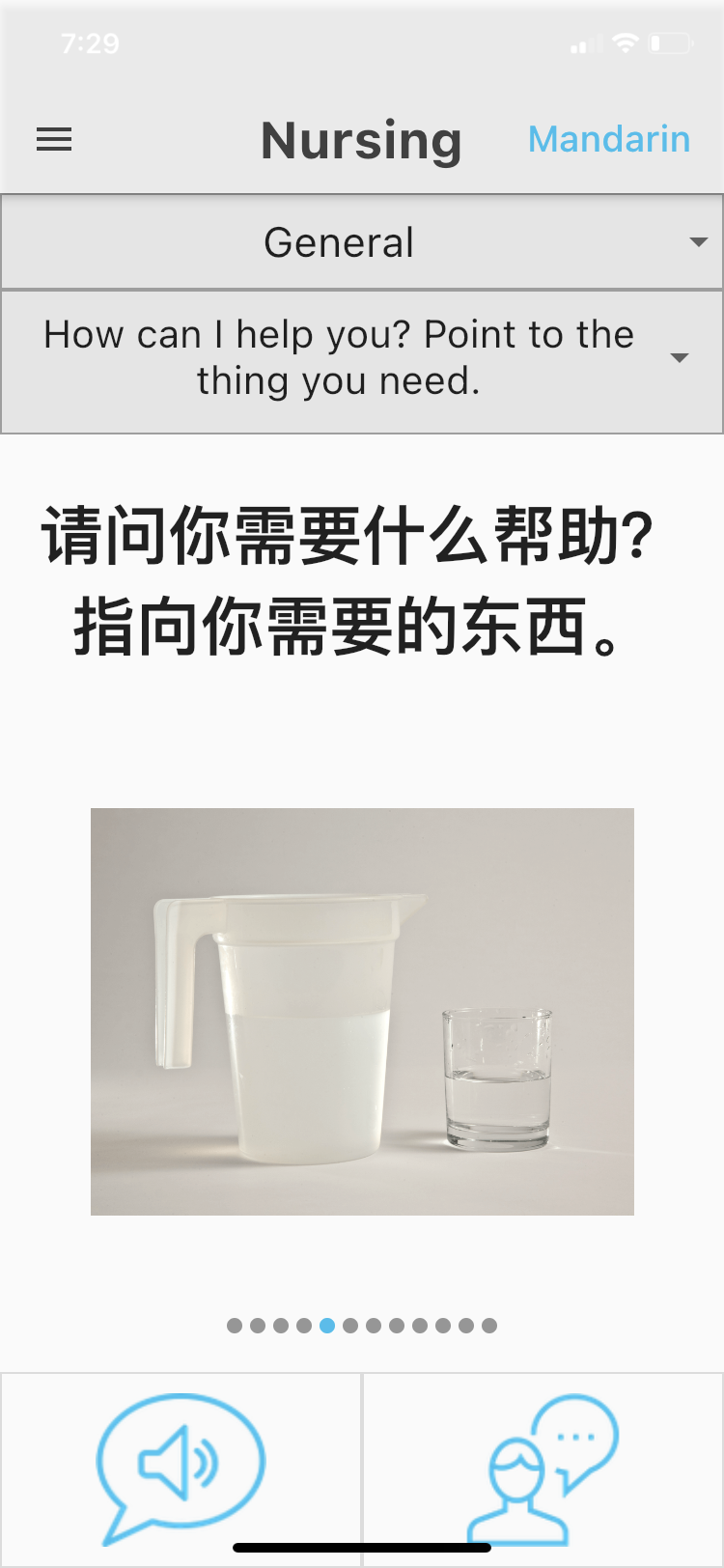The CALD Assist™ App
An easy to use tool to help healthcare workers communicate with clients from culturally & linguistically diverse backgrounds.
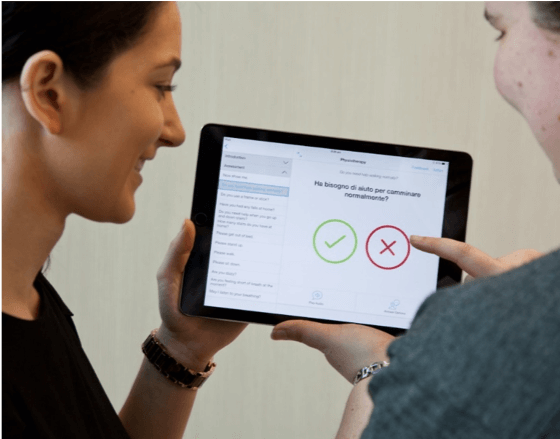
Jill Freyne is the Deputy Research Director, Australian eHealth Research Centre, CSIRO.

Sally Brinkmann is the Manager, Speech Pathology & Audiology, Western Health.

We spoke to them about the CALD Assist app and its suitability for the aged care sector.
What is it?
Sally: The CALD Assist App was developed to support basic interactions between clients from culturally and linguistically diverse backgrounds and healthcare workers.
Jill: Developing the app has been a team effort across CSIRO and Western Health interpreting services, clinical teams, COVID Taskforce and clients. The app has 250 phrases commonly used during basic care interactions.
Sally: We were careful to only include phrases that require a simple response – clicking or pointing to the word yes or no. Anything more complex than that requires an interpreter.
The phrases have been professionally interpreted into: Arabic, Cantonese, Croatian, Greek, Italian, Macedonian, Mandarin, Serbian, Spanish, Vietnamese and English. There are 7 modules including: COVID-19 screening, nursing, dietetics, speech pathology, podiatry, physiotherapy and occupational therapy. We use images, video and pre-recorded audio. Clients can click or point to yes or no answers.
Cultural appropriateness
Sally: We worked with our interpreting and cultural experts to make sure the phrases and images are culturally appropriate.
Is the app applicable to aged care?
The nursing module, in particular, would be appropriate for aged care. We’ve labeled it a nursing module but there are phrases generic to any setting. The app has lots of questions about people’s wellbeing and that’s really relevant in aged care settings.
Jill: The app was designed to be used with older people. It’s got large text, visual cues and audio. It also helps with building rapport with clients and making a start to communicating with each other.
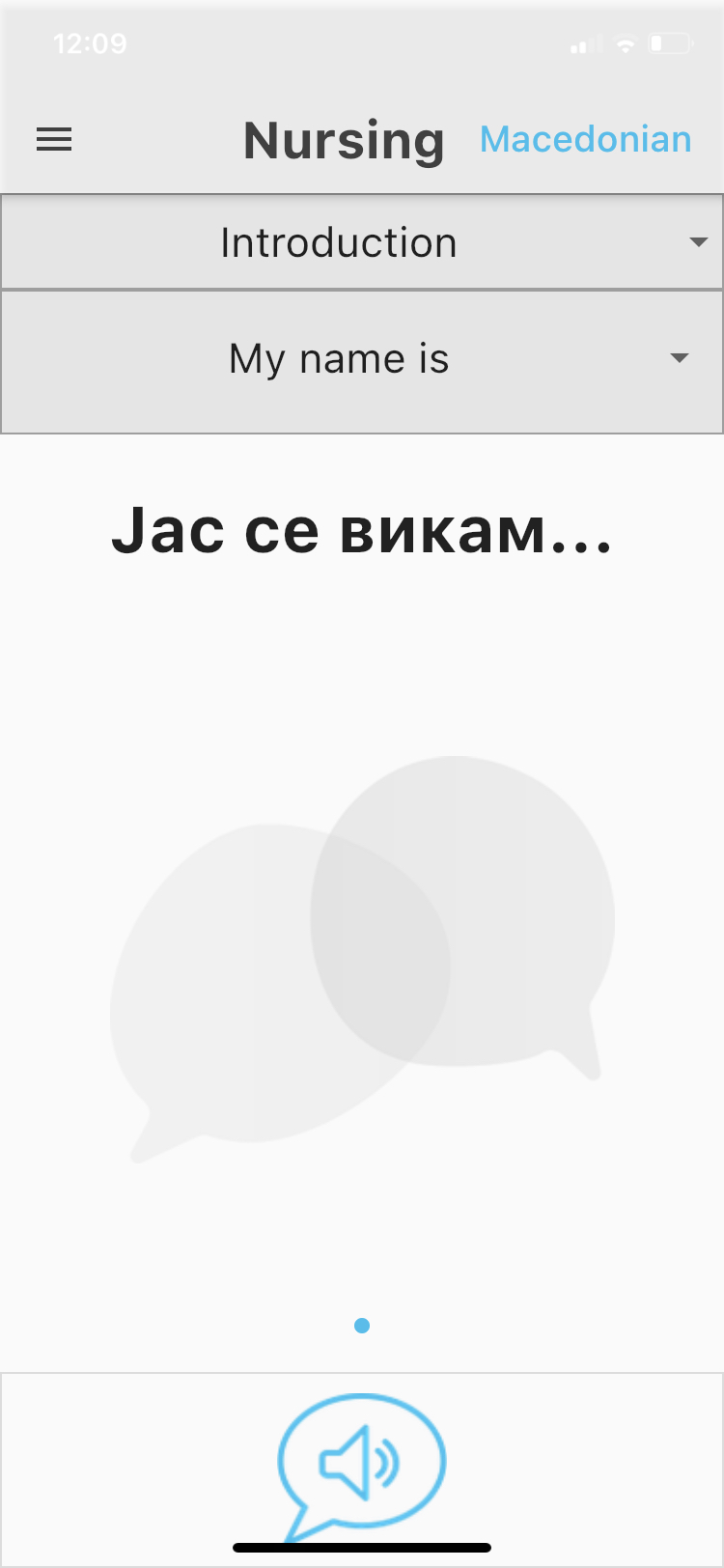
Is an aged care module possible?
Jill: We’re very open to understanding what content is needed for aged care settings and working with the sector, subject to funding. The app is not aimed to be used with a person who has significant cognitive decline. To develop the app to be used in this way might be a challenge but is certainly possible.
Backed by research
The development of the app has been backed by research at all stages. It’s been trialed in Victoria and NSW. We’ve also published evaluations of the app in peer-reviewed journals.
What we found
Sally: We found that healthcare workers who used the app were more confident communicating. Their clients understood what they were asking and were happier with the interaction. The time required to complete assessments was also reduced. In some instances, clients forgot they had even used the app. If the app hasn’t interrupted your experience with communication it’s done its job.
Can’t I just use Google Translate?
Jill: With Google Translate and other translation apps the content isn’t always accurate and they also can be quite difficult to use. There’s a lot of typing involved and the client has no way of responding.
What older clients say
Sally: Clients have said, “This is really good. It helps me feel calm and comfortable. I’m part of this conversation.”
How do I get the CALD Assist app?
Download it for free from the Apple App or Google Play store. It can be used on tablet devices and phones. Android or IOS.
An invitation for the aged care sector
We’re open to talking with the aged care sector about what’s involved with creating an aged care module.
Jill: Try it. See if the app is of value to you. The more people who download and use the app, the more conversations we have about it, the more potential there is to develop it further.
Please contact This email address is being protected from spambots. You need JavaScript enabled to view it..
Thank you Jill and Sally for taking the time to talk to us.
Images supplied by Western Health.

